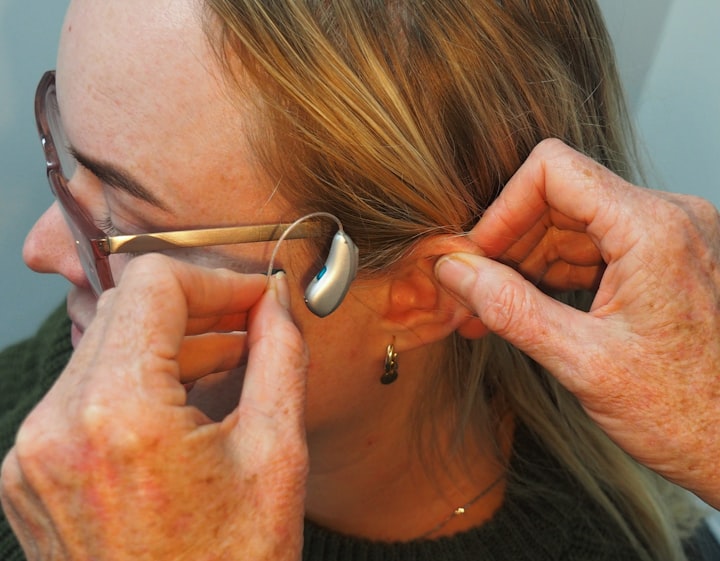What You Should Know About Heart and Stroke Conditions?
Health & Fitness!

Introduction.
The term "heart disease" is used to describe a number of disorders that impair the function of the heart. Without any organ disease, the heart's function can experience some disruptions. Palpitations are the most typical of them. This could be the result of specific chemicals or poisons, including those that can be found in tea, coffee, tobacco, or alcoholic beverages, or it could be the result of emotional states like fear, wrath, joy, grief, or anxiety.
The true signs of heart disease start to manifest as heart failure gets closer. One of the initial symptoms is shortness of breath after light exertion. Following a meal, discomfort and fullness are extremely typical. Other early signs include fatigue and weakness, especially in the legs; heart palpitations with a feeling of fullness in the chest and a dry cough; and dull discomfort and soreness over the liver and the heart. One of the initial signs may be swelling in the ankles. Typically, it gets worse in the evening and goes away as you sleep. The sufferer becomes more and more weak until even the smallest amount of effort leaves him completely drained. He can't sleep and is restless.
Everybody with acute heart disease of any kind has to be under a doctor's care on a daily basis, and everyone with chronic heart disease needs to see a doctor frequently. It's a prevalent fallacy that heart disease results in chronic invalidism, early mortality, and persistent trouble. There is nothing faster than that. Over time, the resilient heart frequently experiences excellent healing. Physical and mental rest is a beneficial treatment. The patient needs to avoid emotional outbursts, especially rage, and eat foods that won't give them gas and indigestion.
To Know About Heart and Stroke Condition Watch this video.
1.One of the most notable manifestations of heart illness is.. .
i. Angina, which is marked by inadequate blood flow to the heart.
ii. Heart Attack, in which a portion of the heart muscle dies.
iii. Arrhythmia, characterised by an irregular heartbeat's rate or rhythm.
iv. Arterial hardening, or atherosclerosis. It is an accumulation of cholesterol and other fatty materials within the artery walls. Any artery in the body can get affected by atherosclerosis, a condition that progresses over time. It is a typical condition of the arteries.
v. Rheumatic heart disease was once among the most severe types to affect children and adolescents. The entire heart and its membranes are damaged as a result of this condition. It is a side effect of rheumatic fever and typically happens after episodes. Widespread use of antibiotics that are effective against the streptococcal bacteria that causes rheumatic fever has significantly decreased the occurrence of this disorder.
vi. Myocarditis, sometimes known as heart muscle inflammation or deterioration This might be the result of a problem during or following one of several infectious viral, bacterial, or parasite infections, like polio, influenza, rubella, or rheumatic fever. Several illnesses, including syphilis, goitre, endocarditis, or hypertension, may be to blame for this.
2. Know the signs of a heart attack.
These signs of a heart attack are frequently present in men:
i. Chest pain or discomfort in the middle.
ii. Other upper body pain or discomfort, such as in the arms, back, neck, jaw, or stomach.
Other signs and symptoms include shortness of breath, cold sweats, nausea, and dizziness.
3. The stroke fundamentals.
For men, a stroke is the third most common cause of death. When a portion of the brain does not receive the blood it requires, a stroke ensues. Then, brain cells pass away.
There are two distinct stroke kinds.
i. An ischemic stroke (iss-kee-mik). This occurs when the flow of blood to the brain is interrupted.
ii. A hemorrhagic stroke (heh-moh-ra-jik). When a blood vessel in the brain rupture, blood spills into the brain, causing this to occur.
To Know About Heart and Stroke Condition Watch this video.
Another possibility is a "mini-stroke." This occurs when the brain receives less blood than usual during a brief period of time. You can exhibit some full-stroke symptoms or you might experience none at all. But it only lasts for a short while—up to 24 hours. You return to normal after that. Many folks don't even realise they are sick. It's crucial to be aware of the symptoms of a stroke because a "mini-stroke" can be a precursor to a major stroke.
4. Recognize the stroke symptoms.
The symptoms of a stroke are distinct from those of a heart attack in that they occur suddenly. Observe these indicators:
i. One side of your body feeling weak or numb.
ii. Vertigo
iii. Loss of equilibrium
iv. Perplexity
a. Communication or understanding issues
vii. A migraine
vii. Diarrhoea
viii. Issues with walking or vision.
5. The 12-Step Guide to a Healthy Heart;
It should come as no surprise that smoking is bad for your heart. Try to stop smoking if you do.
ii. Have your cholesterol checked; if it's high (over 200), discuss weight loss and increasing your activity level with your doctor or nurse. Find out if there is a medication that could be helpful.
iii. Be aware of your blood pressure because your heart circulates blood throughout your body. Your blood pressure will increase if your heart has to work harder to accomplish this task. Check it out to be sure you're on the right track! Considering that it is high (systolic over 139 and diastolic above 89), consult a physician or nurse about lowering it.
iv. Have your blood sugar levels checked because diabetes increases your risk of developing heart disease. Maintain control of your blood sugar if you have diabetes! You can best take care of your heart and yourself by doing this.
v. Consume heart-healthy foods, such as fruits, vegetables, and whole grain products. Pick low-fat dairy and cheese as well as lean meats. Limit items like butter, full milk, baked goods, ice cream, fatty meats, and cheese that are high in saturated fat.
Maintain a healthy weight since it lowers your risk of developing heart disease.
Eat fewer salty meals: Pick salty foods. Replace salt with spices, herbs, lemon, and lime. If you have high blood pressure, this is crucial.
viii. Limit your alcohol intake as excessive alcohol elevates blood pressure and increases the risk of stroke and other health issues.
ix. Get moving: Engage in physical activity for at least 30 minutes most days, if not every day of the week.
x. Take your medication as directed: If your doctor has prescribed medication to lower your blood pressure or cholesterol, follow the directions properly.
xi. Treat your sleep issues: You may have sleep apnea if you snore loudly, have been informed you stop breathing occasionally while you sleep, and are extremely sleepy during the day. It increases your risk of getting a heart attack or stroke if you don't address it.
xii. Find healthy ways to deal with stress. Eating, drinking excessive amounts of alcohol, or smoking are all unhealthy ways to deal with stress and could harm your heart. Engage in social interaction, exercise, or meditation to reduce your stress.
To Know About Heart and Stroke Condition Watch this video.





Comments
There are no comments for this story
Be the first to respond and start the conversation.